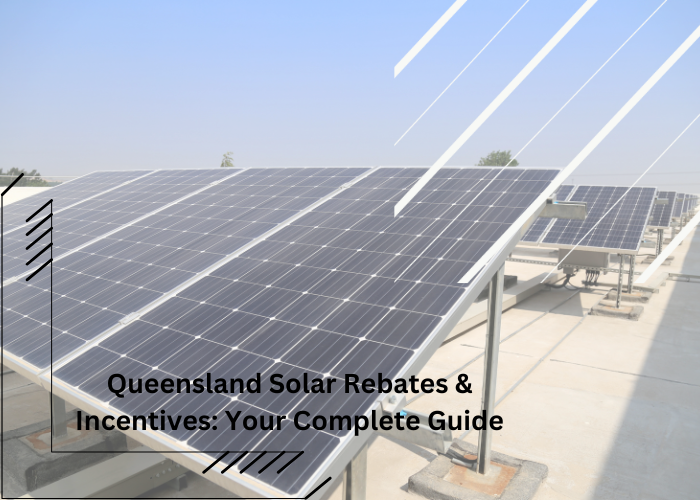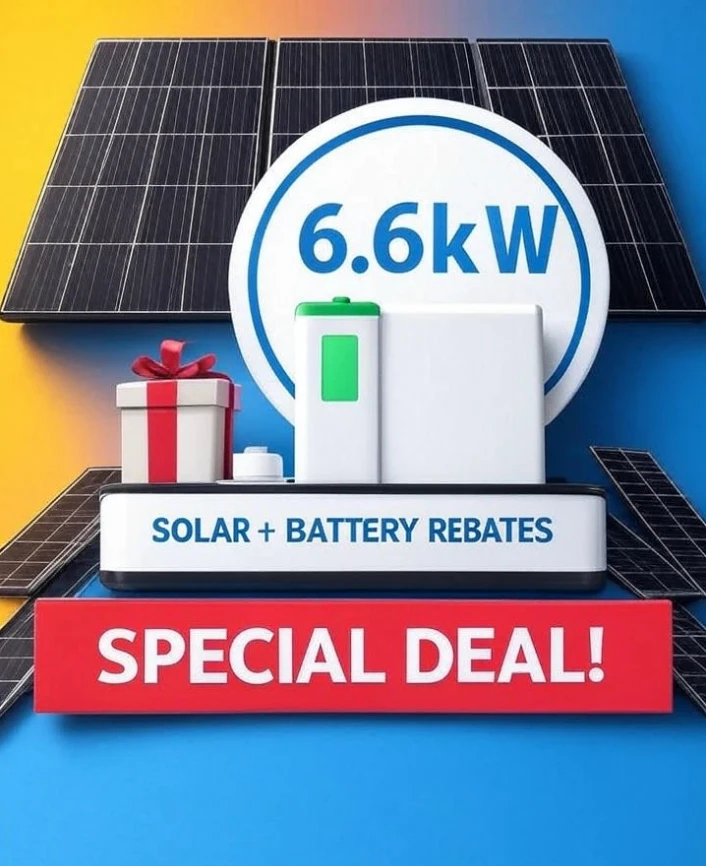Are you aiming to cut down the cost of installing solar panels or battery systems in Queensland? Solar rebates and incentives are designed to make renewable energy more accessible and affordable for homeowners and businesses in the Sunshine State. This guide covers everything you need to know about Queensland’s solar and battery rebates in 2024. Whether you’re new to solar power or considering battery storage, this resource will help you navigate the available incentives and maximize your savings.
For a detailed look at all solar rebates available across Australia, check out our comprehensive solar rebate guide.
List of Solar Rebates & Incentives in Queensland 2024
| Program | Type | Details | Maximum Amount |
| Federal Solar Rebate (SRES) | Solar Panel Rebate | Reduces installation costs via tradable Small-scale Technology Certificates (STCs). | Approx. $400–$600 per kW |
| Queensland Feed-in Tariff | Feed-in Tariff Credit | Earns credits for exporting surplus solar energy to the grid. | Between 6 and 10 cents per kWh |
| [Closed] QLD Battery Rebate | Battery Rebate & Loan | Offered interest-free loans and rebates for eligible battery installations. | Up to $6,000 (loan) & $3,000 rebate |
| Virtual Power Plant (VPP) Program | Income & Savings | Earns payments for sharing stored solar energy with the grid. | Varies by provider |
Overview of Queensland Solar Rebates
Federal Solar Incentive (SRES)
- What It Offers: Upfront savings via Small-scale Technology Certificates (STCs).
- Rebate Amount: Approximately $400–$600 per kW, depending on system size and location.
- Eligibility: Systems under 100 kW installed by a Clean Energy Council (CEC) accredited installer.
- Example Savings: A typical 6.6 kW system in Queensland can see upfront cost reductions of around $2,500.
Queensland Feed-in Tariff
- What It Offers: Earn credits on your electricity bill for excess energy exported to the grid.
- Current Rates: Typically 6–10 cents per kWh, depending on your retailer.
- Eligibility: Households with grid-connected solar systems.
Queensland Solar Battery Rebate [Closed]
Although this program has ended, it previously offered:
- Rebate: Up to $3,000 for battery installations.
- Interest-Free Loans: Up to $6,000 for eligible systems.
Virtual Power Plant (VPP) Programs
- What It Offers: Financial benefits for households allowing their battery systems to support the grid during peak demand.
- Potential Savings: Varies based on energy shared and provider agreements.
How Much Can You Save with Queensland Solar Rebates?
Example for a 6.6 kW System:
- Installation Cost After Federal Rebate: $6,000–$7,000.
- Annual Electricity Bill Savings: Up to $1,500.
- Payback Period: Approximately 3–5 years.
Key Considerations for Solar Savings
Larger Systems for High Energy Usage
If your household consumes more than 20 kWh per day, upgrading to a 10 kW system can help maximize self-consumption and long-term savings.
Battery Storage
Adding battery storage increases upfront costs but offers greater energy independence and backup power during outages. Payback periods for batteries typically range from 7–10 years.
Factors Influencing Solar Savings
Federal Rebate (STCs)
Queensland residents benefit from STCs under the federal rebate scheme. For a 6.6 kW system, this results in savings of approximately $2,500–$3,000, with the rebate applied directly by your installer.
Energy Usage and Self-Consumption
To maximize savings, prioritize using solar energy during the day. While feed-in tariffs offer credits for exported energy, these are generally lower than the cost of grid electricity.
Feed-in Tariffs
Choose a competitive electricity plan to maximize feed-in tariff benefits. Rates vary between 6–10 cents per kWh.
Sunny Climate Advantage
With an average of 5.5 peak sun hours per day, Queensland’s climate allows solar panels to generate higher energy output than in less sunny regions.
| Metric | Amount |
| Total System Cost | $9,000 |
| Federal Rebate (STCs) | -$3,000 |
| Out-of-Pocket Cost | $6,000 |
| Annual Energy Savings | $1,500 |
| Payback Period | 4 Years |
| Savings Over 10 Years | $15,000+ |
Additional Solar Programs in Queensland
Virtual Power Plant (VPP) Programs
- How It Works: Battery owners can share excess stored energy with the grid.
- Benefits:
- Earn additional income.
- Support grid stability.
- Reduce energy costs for all.
Community Solar Initiatives
Emerging programs focus on making solar energy accessible for shared housing and rental properties.
Example: Caloundra Local Renewable Energy Zone (LREZ) Pilot
- Features:
- Shared access to locally generated solar power.
- Cost reductions through daytime energy storage and nighttime redistribution.
- Collaboration to enhance energy efficiency.
- Launch Date: January 2025.
Explore similar programs in your area to complement solar rebates and feed-in tariffs for enhanced savings.
Maximizing Your Queensland Solar Savings
Queensland’s solar rebates and incentives make transitioning to renewable energy more affordable than ever. By utilizing federal rebates, feed-in tariffs, and emerging community programs, you can significantly reduce upfront costs and energy expenses.
Contact a local CEC-accredited installer today to explore your options and start your journey towards sustainable energy savings!

